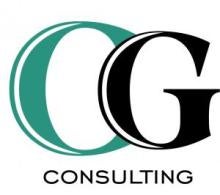The challenges for law firms to retain attorneys deeper into their careers are much different than 10, 15, 20 years ago. In 2017, Above the Law and Major, Lindsey & Africa conducted a survey that showed that a quarter of associates only intend to work at their firms for two years or less, and a majority of associates plan to work at their present firms for five years or less.
In addition, the competition for lateral attorneys with a book of business is as strong as ever. The reality is that there is considerable job movement of attorneys at every level.
The business of hiring, training and integrating attorneys into a firm requires significant effort and investment. Retaining your best attorneys also requires investments of time, money and effort. How can firms best marshal their resources to keep talented attorneys, and is it worth it? Is there even such a thing as law firm loyalty anymore?
Salary is a factor, but not the factor
Glassdoor® released data in 2018 that showed that 45 percent of hiring decisionmakers found that salary was the top reason why employees changed jobs (followed by career advancement opportunities, benefits, and location).
To some extent, tangible factors like salary and office locations, are fairly fixed. Either you can compete in the ever-escalating salary race for the top associates in the markets where you have offices, or you can’t. Even if you can, does money alone buy loyalty? Assuming all things financial being equal, and that the attorneys in your firm are in the right salary lanes, for what other reasons would an attorney choose to stay at a firm for a length of time?
For job candidates, your culture is your brand
In terms of job satisfaction, the Above the Law survey found that millennial lawyers valued firm culture above everything else. Brand, culture, reputation, differentiation – call it what you will, when it comes to retention the question becomes, “What is it about this firm that makes it the best fit for me and the other lawyers in this firm?”
If you’ve been at the firm for a relatively long time, be careful how you answer this question because you may be too close to it. Take an audit of your third-party evaluations in places such as Vault, Glassdoor, and Above the Law. Look at what people are saying about your firm on social media. Once you have an unvarnished understanding of the perception that outsiders have of your firm’s culture, you can be realistic about your weak spots and focus on those.
It starts with recruiting
How clear and consistent are the messages that go into your recruiting program?
There are numerous ways to get everyone who is involved in recruiting on the same page. Depending on the size of your recruiting program, it may be beneficial to invest in activities such as an updating your recruiting materials/website, and training the attorneys who will be conducting on-campus interviews. Weave the themes that go into the recruiting materials into everything that you publish about the firm and reinforced those themes in your social media. If you don’t control your message, someone else will.
To get a return on loyalty, invest in loyalty
Everyone wants to be valued in their place of employment. Knowing that your firm is investing in you and your career by supporting you through professional development, recognition, thought leadership, business development support, and practice participation, can go a long way toward engendering loyalty. Here are some programs/initiatives that you may want to focus on, or consider (if you don’t have them already).
Attorney Integration – A lot of effort has gone into selecting the new and lateral attorneys whom you’ve hired. An equal or greater effort should go into making them successful. What is an attorney’s experience at the firm from day 1? Is there a 30, 60, 90-day integration plan? The more attorneys become ensconced in a firm, the less likely they are to leave.
Practice Development – A great deal of the responsibility for creating a strong connection between an attorney and the firm should fall to the practice groups. This requires having active practice leaders and individual practice plans. The goals of the members of a practice should be baked into the practice’s overall plan. You also may want to invest in training for the practice leaders who don’t naturally know how to bring along the other attorneys in their practice. Loyalty is created by the mentoring, leadership and succession-planning that happens at the practice level.
BD – There is a question that goes with new attorneys developing relationships with existing clients – when is the right time to let lawyers work directly, and develop relationships, with key clients? Entrusting lawyers with client relationships signals that the firm is taking a long-term interest in them. But how do you know that the lawyers won’t leave the firm and take those clients? The short answer is, you don’t.
One approach that may be helpful here is the “Finders, Minders and Grinders” concept that has been used to describe different types of lawyers (and other professionals). “Finders” are naturals at business development, “Minders” are service partner/associates, and “Grinders,” although not naturally good at finding or minding, get work done. Attorneys will be the happiest if you put them in roles where they can be successful. Finders, for example, don’t want to be Grinders, and Grinders don’t want to be Finders.
In terms of BD, the goal is to identify the Finders and free them up to find work. In terms of relationship-building, identify and develop the Minders who have a future at your firm and introduce them into the client relationships. Reward the Finders, Minders, and Grinders accordingly. Loyalty is created when you recognize, reward, and develop each person’s particular skillsets and contributions.
Recognition – Does your firm have strong internal communications and PR programs that tout the significant and/or unique achievements of attorneys around the firm? Attorneys want to be supported and promoted by their firm. Firm and firm-leadership communications have a double-benefit – they support those attorneys being recognized and they show everyone the types of achievements that are possible at the firm. How well does your firm promote and communicate pro bono, community service and diversity? The goal is to inspire your lawyers to feel both proud of, and connected to, the firm.
For more ideas, look outside of the legal profession
Yes, you want to be equal to your peer firms in these areas so the grass doesn’t look greener on the other side. Examples also abound outside of the legal profession. Why do some schools have alums that are more loyal than others? How does the Navy SEAL program create a level of loyalty that makes people willing to risk their lives for their country and each other? Look for best practices that your firm can borrow from companies that have been successful in creating cultures of inclusiveness and excellence.
Loyalty is a two-way street
No one can give you the formula for the mix of retention programs to engender loyalty that will be right for your firm. What is clear is that high salaries combined with a toxic culture do not create loyalty. Attention to loyalty-related programs can lead to less turnover, more cohesive client teams, a values-based culture and, most important, a law firm where great people stick around.




 />i
/>i

